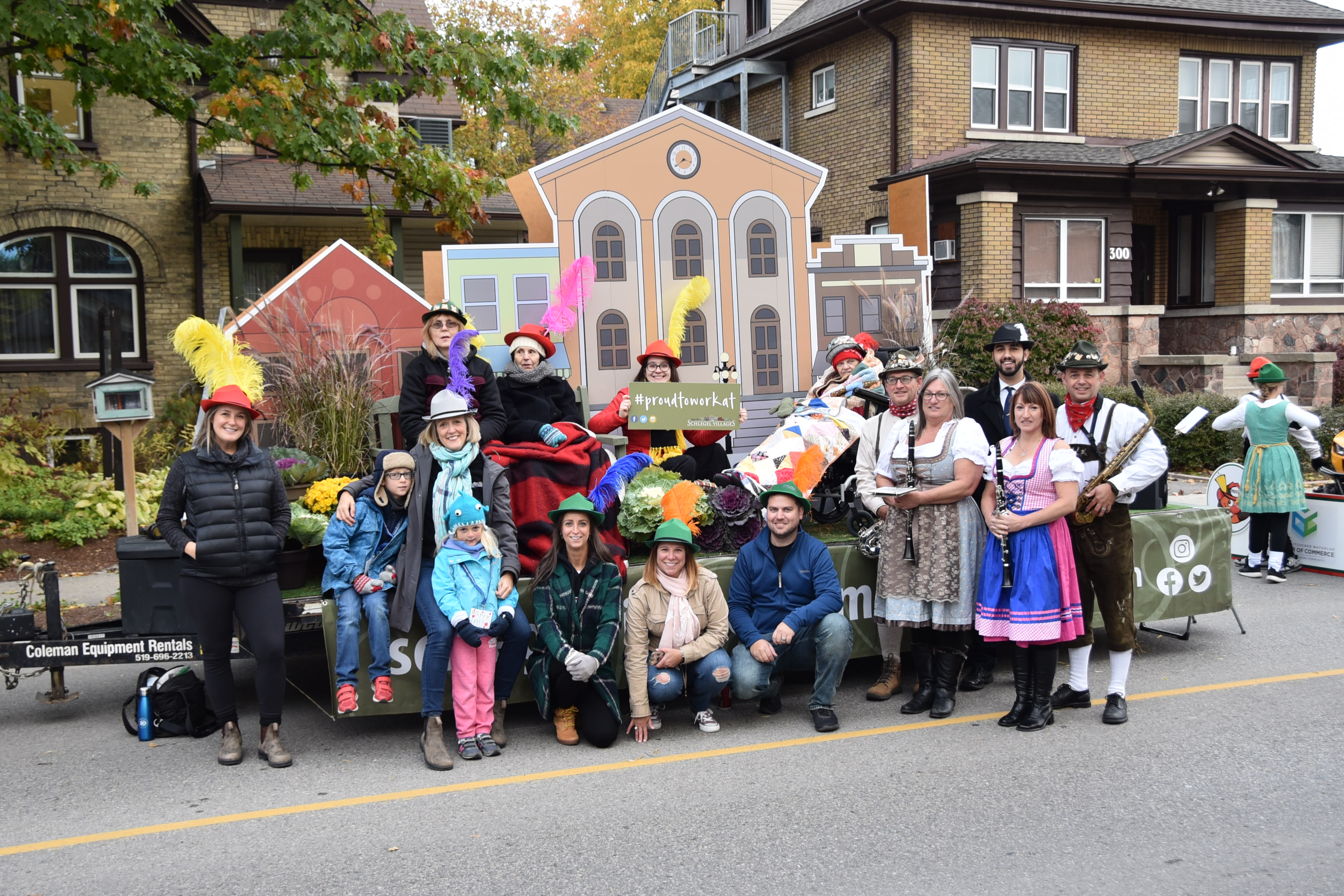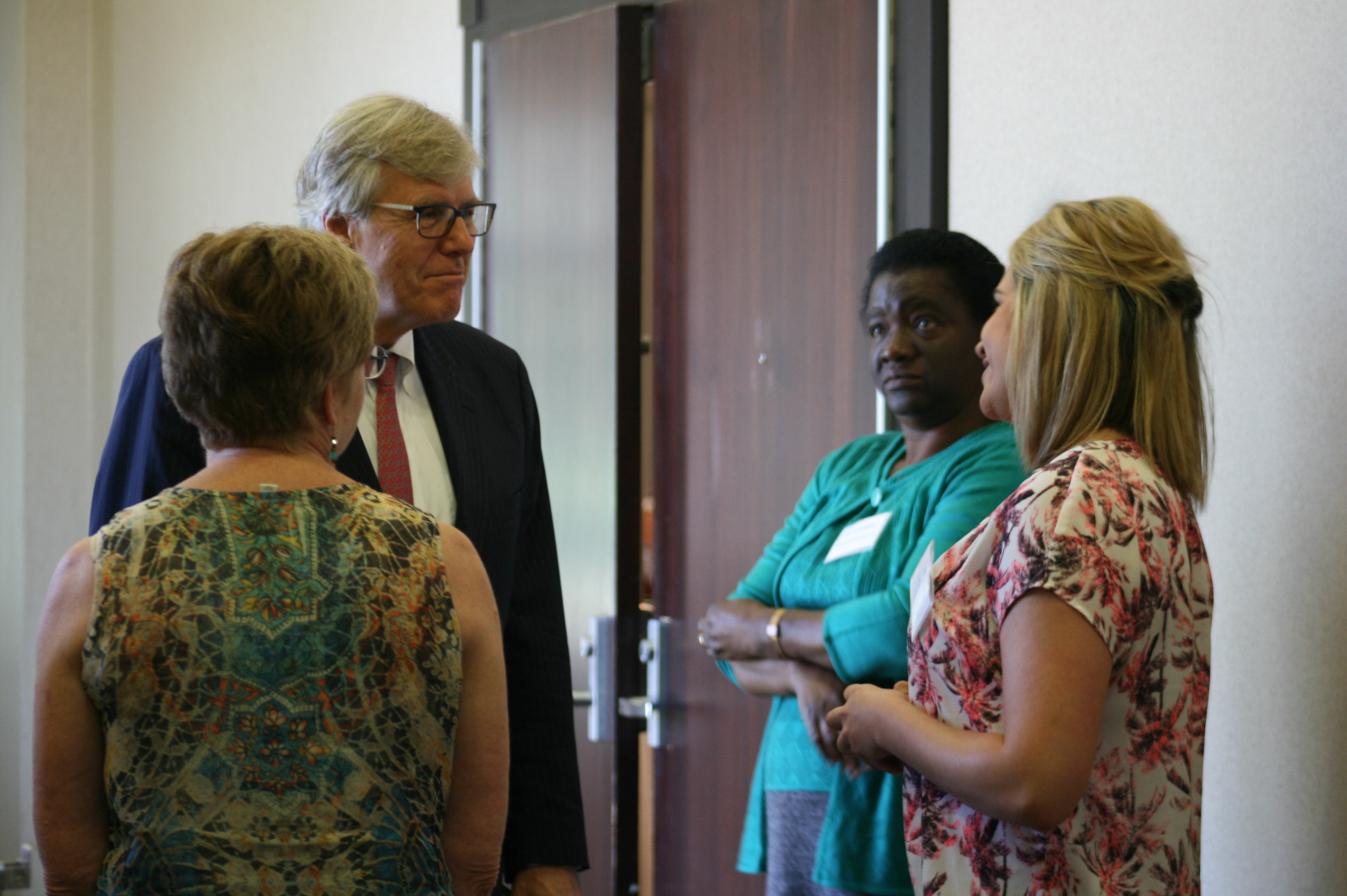Mary Beth Wighton sits upon a black leather chair on the stage in the Grand Ballroom of the Crowne Plaza Hotel in Niagara Falls, comfortable and relaxed before a crowd of more than 300 people connected to Schlegel Villages. Large screens to her left and right carry the streamed images of her fellow panelists, conferencing into the organization’s Operational Planning retreat from Washington D.C. and Glasgow, Scotland.
The future of dementia care is the subject, and the three panelists have a wealth of wisdom to share. As a globally respected advocate, Karen Love in Washington has spent nearly two decades threading together research, policy and practice to enhance the lives of people living with dementia. Agnes Houston in Glasgow was diagnosed with early onset Alzheimer’s disease more than 10 years ago at the young age of 57 and has since toured the world campaigning for a better understanding of the realities of her disease, especially as it relates to sensory challenges.
Mary Beth was 45 in 2012 when she was diagnosed with probable frontotemporal dementia, a diagnosis she used a catalyst for action. She’s been a powerful advocate for the rights of people with dementia ever since, chairing the Ontario Dementia Advisory Group among many other leadership roles.
She speaks for those whose voices are muted because of their changing brains and society’s stereotypical understanding of dementia. She speaks for those who are seen as merely a diagnosis, less than their former selves; she speaks of dignity in the most dignified of manners, for she speaks for her future self.
“I want to be part of life,” Mary Beth says with sincerity before asking the audience to imagine waking each day, merely for the purpose of eating breakfast. “Then you wait around to have your lunch. Then you wait around a little bit more, maybe you watch some T.V. that you’re really not interested in and then you have dinner and you go to bed.
“Is that what you want for your life?” she asks. “I want to make sure that I’m active and involved in my life and actively playing a part in it.
“My priority is today because I do not know what tomorrow will bring and so I truly have to make this day the best day.
“Think about yourself,” Mary Beth continues, her message clear, concise and powerful. “If you have dementia, what do you want? Hopefully, when you take that back to your jobs, whatever that job may be, you’ll think about that. The compassion and care; just let it go and bring it out because people with dementia feel that.”
Throughout the discussion, Mary Beth and her fellow panelists draw the audience into a place where stereotypes are diminished or wiped out entirely. It’s done in the minds of each listener as they imagine themselves facing a future under the broad blanket of a dementia diagnosis.
Agnes imparts wisdom based upon her lived experience, explaining how dementia and Alzheimer’s disease is much more than memory loss; it’s a complete alteration of perceptions creating a burden of sensory challenges unique to each person. Karen inspires people to consider the role they play in changing public understanding and Mary Beth speaks of dignity and self-determination.
They speak of a future where all who live with dementia can do so on their own terms, and they ask the audience to consider that the future could be now.
- Previous
- View All News
- Next



























































































































































































































































































































































































































































































